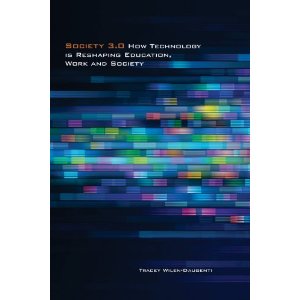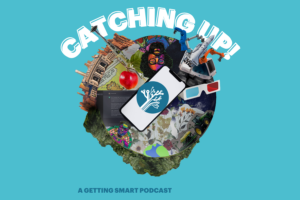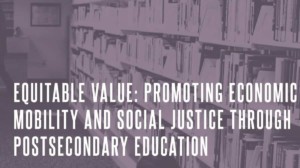Education Evolving: Five Predictions for Higher Education—2012
“Education Evolving: Five Predictions for Higher Education – 2012” is from the upcoming book Society 3.0: How Technology Is Reshaping Education, Work, and Society, by Dr. Tracey Wilen-Daugenti (Lang, January 2012).
 An adult with a bachelor’s degree will earn about one third more over a lifetime than someone who doesn’t complete college. And today’s employers are increasingly requiring degrees as a prerequisite for high-skill jobs. To remain employable and guarantee financial security during extended careers and into retirement, millions more Americans must commit to obtaining a higher education.
An adult with a bachelor’s degree will earn about one third more over a lifetime than someone who doesn’t complete college. And today’s employers are increasingly requiring degrees as a prerequisite for high-skill jobs. To remain employable and guarantee financial security during extended careers and into retirement, millions more Americans must commit to obtaining a higher education.
These facts come from a new book by Dr. Tracey Wilen-Daugenti, Society 3.0: How Technology Is Reshaping Education, Work, and Society. In Society 3.0, Dr. Wilen-Daugenti presents a compelling case that higher education institutions must evolve to serve workplace skill requirements and respond to societal trends, such as earning a degree later in life. Based on her research at Apollo Research Institute, she makes the following predictions for higher education in 2012:
1. Higher education will rule the résumé.
The percentage of jobs that require higher degrees has doubled in the past 40 years and will continue to increase. By 2018, 637,000 more low-skill jobs will disappear from the U.S. workforce or be offshored. Up to 60 million Americans could miss out on entering the middle class if they don’t obtain a higher degree. The U.S workforce will require 22 million degree-equipped employees for the high-skill jobs that will be created through 2018, but current graduation rates will result in a shortfall of 3 million graduates.
2. The workforce of today may not be employable tomorrow.
A disparity exists between the skills today’s workers possess or are willing to learn, and those that employers will require to fill jobs they create in the coming years. Current trends in technology, longevity, and business structure mean that workers will need radical new skills to thrive in the data-driven, interconnected workplace of tomorrow. Higher education institutions must therefore launch programs that teach these new skills (including social intelligence, cross-cultural competency, transdisciplinarity, new media literacy, and virtual collaboration).
3. Education and work are converging as a lifelong pursuit.
The majority of today’s college students are “nontraditional” learners, including those who are 23 years of age or older, finance their own education, and work part- or full-time while attending classes. Nontraditional students are a diverse population, but include first-generation college-goers, reentry students, single mothers, researchers, Baby Boomers, retirees, and those seeking to advance in their current careers or switch fields. Because extended employment will replace traditional retirement as people live longer, lifelong education will help people remain employable.
4. Students will learn when and where they choose.
Educational institutions will evolve to keep pace with technological and social trends so they can update the skills they teach, the means they use to deliver instruction, and the range of students they educate. These changes will include more distance learning programs, where online coursework and class participation supplements or replaces face-to-face classes. Online and distance learning will benefit working students and universities pressed for classroom space.
5. Businesses and colleges will unite to create a talent pipeline.
With the growing need for skilled employees for the advanced jobs that will be created in the next decade, businesses will work more closely with educational institutions to craft programs that train and develop a skilled workforce. Companies will establish private educational ventures to train their employees directly, or partner with existing for-profit universities. Educational tracks will be customizable, using adaptive learning tools, analytics, and customer resource management technologies to match programs to students’ needs. Undergraduate degree programs will last less or more than 4 years, as some students dedicate themselves to full-time education, while others fit courses into career and family commitments.
Learn more about the book Society 3.0 at http://apolloresearchinstitute.com/society-30-how-technology-reshaping-education-work-and-society, and visit Apollo Research Institute: www.apolloresearchinstitute.com.






Cathy Kemper
I believe that most people in higher education understand that these 5 predictions are already becoming our reality; however, the matter of quality online education is still a problem. Digital immigrants are teaching digital natives online, and not all digital natives are created equally. In community colleges, our digital natives often do not have the academic background and discipline required to be successful in online education. Until we can adequately prepare students in K-12 for post-secondary education, online courses will not be a successful alternative for many students. However, they will be enticed to select online courses, placing convenience over ability to succeed. In an educational world emphasizing student success and completion, this creates a lose-lose situation for students and institutions of higher education.